RIC Nursing Student Joins Medical Mission in Central America
- News & Events
- News
- RIC Nursing Student Joins Medical Mission in Central America
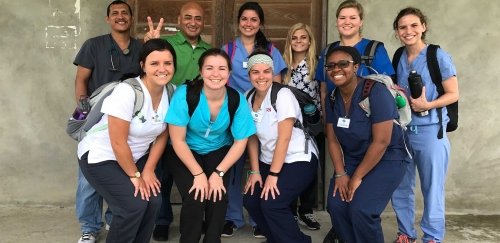
RIC nursing student Jena Lerch (back row, far right) with International Service Learning health-care team.
It is painful for Jena Lerch to talk about her grandfather. He was a Pennsylvania dairy farmer, but to Lerch, he was just Pop – kind, compassionate, always extending a hand.
“Everybody loved him and he loved doing things for other people,” said the RIC nursing student. “He’d make a pie and bring it to the guys down at the gas station.” Her grandfather died last winter at age 82. Still grieving, Lerch felt she needed to do something to honor him.
Her tribute turned into an eight-day medical mission in one of the least populated countries in the world.
From July 22-30, Lerch joined the International Service Learning (ISL) health-care team in Belize, Central America. There she worked with a team of five American senior nursing students and two established nurses led by two ISL team leaders (native Belizeans). Together, they provided health services to more than 100 impoverished villagers. Lerch said Pop would have been proud.
Funded by a grant from the Michael P. Metcalf Memorial Fund through the Rhode Island Foundation, all of Lerch’s expenses, including airfare, were paid for. The Metcalf fund was established to provide college students with grants to subsidize experiences that broaden their perspective and enhance their personal growth. According to founding member James Wyman, the grant “is to be unique, channeled to dreamers and potential leaders who clearly are outstanding students able to benefit from a life-changing experience.”
This experience was indeed life-changing for Lerch.
A nation on the eastern coast of Central America, Belize has a little over 300,000 inhabitants yet comprises many ethnic groups: Garifuna, Creole, Mestizo, Maya, Mennonite, Chinese and East Indian. Though English is the official language, half the population, regardless of ethnicity, speak Creole.
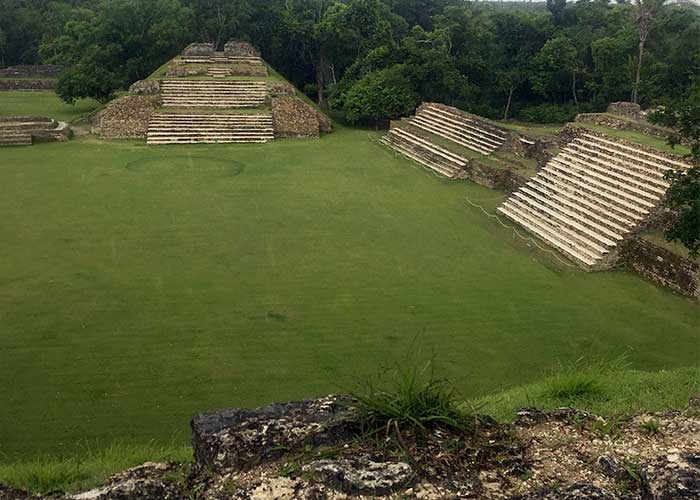
The Maya were the first to inhabit Belize. They are also the most heavily represented among the poor in the country. According to the most recent Poverty Assessment Report (2016), the poor comprise the bottom 40 percent of the population and are situated predominantly in rural areas.
On their first day, ISL leaders held an orientation. On day two, along with more orientation, the group took a trip to Altun Ha, the ruins of an ancient Mayan city. And on day three they met their first villagers.
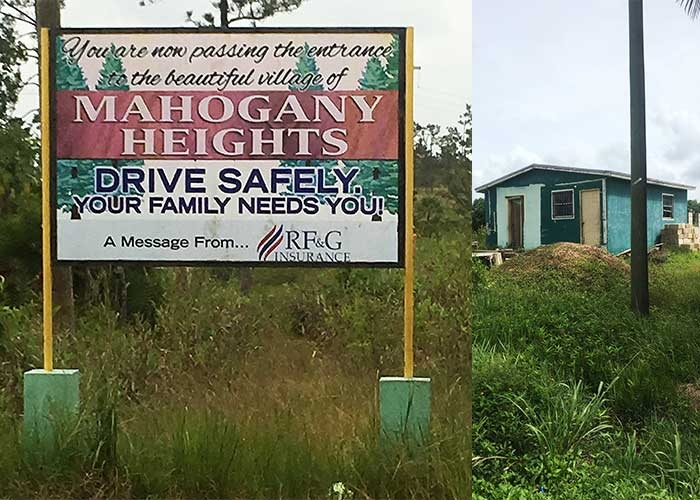
In remote rural areas, many villages lack basic provisions, such as reliable electricity and access to clean water and sewage services, which can lead to waterborne diseases. Pit latrines and septic tanks are the most common forms of sanitation (“Water and Sanitation in Belize,” 2013).
From her community nursing courses at RIC, Lerch said she was made aware of the relationship between environmental sanitation and health. She noted, for example, the problem of smoke inhalation from outdoor cooking fires which might be a factor in the respiratory problems she encountered.
Free health care is available to all Belizeans. Lerch said most villages have a small public health clinic, with one or two health workers assigned to each clinic; however, the clinics open for only a few hours, once a month.
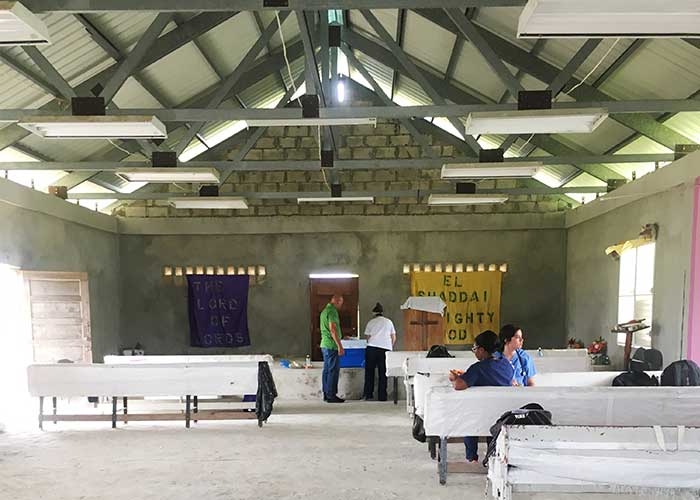
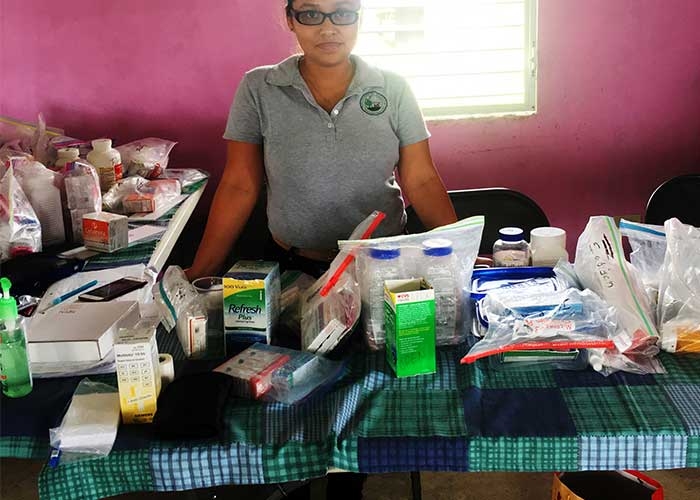
The ISL team held three eight-hour days of free clinics and saw a total of more than 100 patients in two villages. Lerch paired with another team member, sharing the task of interviewing patients and conducting physical exams. After assessing each patient, the patient was then seen by a Belizean doctor brought in to work with the ISL team.
On the day before their departure, the group took a 30-minute boat ride to an island called Caulker Caye and enjoyed a day of snorkeling.
“It was interesting to see all the tourists who came to Caulker Caye,” Lerch said. “They were on lavish vacations, while many of Belizeans were living in very different conditions.”
The most significant takeaway for Lerch was an awareness of “how much we take for granted and how fortunate we are in the United States.”
Like her grandfather, Lerch is now dedicating her life, as a nurse, to helping others. She learned from her grandfather that a successful life isn’t marked by position or possessions but constitutes making a positive difference in the lives of others.
ISL offers experiential, multidisciplinary humanitarian programs in Central and South America, the Caribbean, Mexico and Africa.
